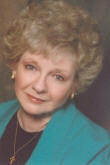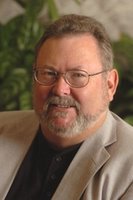Ask the Authors: Thursday

Ask the Authors: Thursday
If you have questions you’d like us to ask during a future “Ask the Authors” week, send it to CharisConnection@gmail.com. As always, thanks for joining us!
Today’s question: What is your biggest frustration about the writing life?
My biggest frustration is deadlines. There just never seems to be enough time to finish a novel the way I want it finished, never enough time for rewrites, no matter how much time I have. --Hannah Alexander
The speed with which it is necessary to produce novels in order to write fulltime. One of my favorite authors writes a book every seven years. His books are well-researched and about 250 thousand words in length. I’m a deliberate craftsman, and while I don’t think I’d want to take seven years to write a book, I'd love to be able to slow down to one book a year. — Jack Cavanaugh
The way regular life intrudes upon it. I have my schedule and my week planned out, and then so many other things seem to crop up that need immediate attention. It's a constant battle to prioritize correctly. -- Robin Lee Hatcher
Often the business side of writing encroaches on the creative side. It's a very difficult balance, because both matter. I find myself longing for uninterrupted time to get lost in a story, even as I'm fiddling with promotional materials and what have you. The only solution is discipline. Oy. --- Liz Curtis Higgs
First drafts! Hate ‘em, hate ‘em, hate ‘em! Give me a sloppy, disorganized, pitiful manuscript and I can fix it up good as new. But getting those words down on the blank screen is like pulling teeth, giving birth, murder—whatever cliché you want to fill in the blank with. ––Deborah Raney
(1) Time. There's never enough of it. And (2) The ever-present, usually banal chatter about the inferior quality of Christian fiction by those who "almost never read it," yet for some reason always seem to be writing it...and critiquing it. -BJ Hoff
That I can’t take volumes of time to write a book. I have to attack it every day. Then I have to have the same attack skills to keep my name in front of the public. I have to be my own publicity agent. I know of an author who hired a publicity agent. She spent most of her time driving the agent to work as hard for her as she had done. It can be a little daunting to realize that when your book is finished your work has just begun. --Patty Hickman
Patience. I have none. The writing process is a slow one in every area. Beginning from the start, through the sale, the editorial process, marketing, building a solid fan base. It all takes time. –Lori Copeland
Sales Figures. Period. They can absolutely lay me flat. --Lisa Samson
The solitude. It is essential to the writing process but also counter-productive to it. One cannot write authentically without rich life experiences, yet those kinds of experiences are impossible to get while sitting alone in a room with a keyboard, yet the actual writing can only be done alone. Also, because of the solitary nature of the writing process the feedback from those one hopes to reach is often too little, too late. Other art forms provide the artist with more immediate reactions. Singers, musicians, actors and dancers have the audience right there, but just as writers write alone, readers typically read alone. It’s hard to know what resonates and what does not until many months of work are already done. Often the best feedback comes after the work is bound and on the shelf and it’s too late for adjustments. One must trust one’s instincts all the more and instincts are often so untrustworthy. In the end, you have to write for just yourself and hope enough people will understand to allow you to keep getting published. —Athol Dickson
Writing. ~Brandilyn Collins
The long time between finishing a novel and seeing it come out. This is a reality of the sales process, but I'd much rather have books hit much sooner. -- James Scott Bell
The fact that it's so STINKIN' hard to get started! Don't know why, but getting started on a story is like pulling teeth for me. With double shots of novocaine. (And if you knew how much I HATE dentists, you'd understand just how bad that is!) It's something I've prayed about, asking God to help me overcome it. Because once I get into the writing, it's much better. But getting in there...just hate that. --Karen Ball
Hearing the prejudice that abounds against Christian fiction. Romance writers face the same kind of attitude, but that doesn’t make the caustic comments sting any less. –Angela Hunt





















